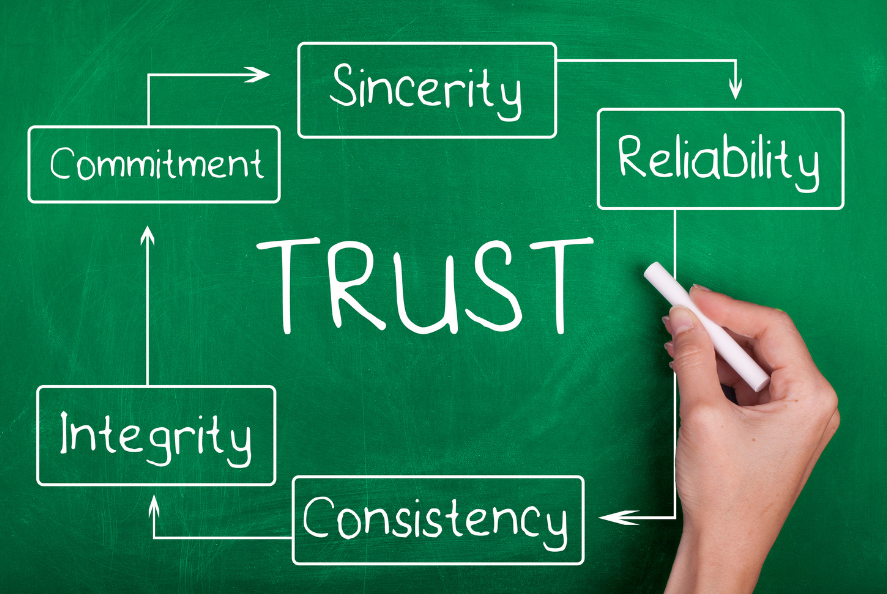Has anger quietly crept into your marriage like a slow poison?
Unresolved pain from the past can slowly build up, transforming into resentment that erodes the very foundation of your relationship.
Research from the Gottman Institute, shows that four toxic behaviors - criticism, contempt, defensiveness, and stonewalling (known as the “Four Horsemen”) – can predict divorce with over 86% accuracy.
When these toxic behaviors become routine, it can feel like your marriage is in a free fall.
But here’s the thing: anger doesn’t pop up out of nowhere.
It’s roots often trace back to childhood experiences, shaping not only how you express anger, but also how much of it you’re willing to tolerate – and this can profoundly affect your relationship.
In this post, you'll discover how your early experiences influence the way you handle anger, why you may feel drawn to a partner who triggers you, and the most common sources of anger in marriage.
I’ll also break down the role of apologies (or the lack of them) and offer practical strategies to manage anger and start rebuilding trust.
Ready? Let's dive in.

How Childhood Shapes Anger in Adulthood
Influence of angry parents
Did you grow up with parents who had a short fuse? Today you might find that you’ve inherited a fiery temper.
Or maybe you’re just the opposite – you’ve become so good at suppressing anger that you’re seething inside while pretending everything’s fine.
Neither scenario is a win.
One study from the International Journal of Behavioral Development followed 75 families over three generations and found that if the first generation of parents were angry and aggressive people, their kids (the second generation) were much more likely to parent the same way 5 to 7 years later.
Anger can be passed down through the family by both genes and learned behavior.
Did you attract a temperamental partner?
On the other hand, if you’re someone who AVOIDS conflict—maybe because you hated the yelling at home—you might unintentionally end up with a partner who has a hidden temper.
At first, it may go unnoticed, but as you and your partner grow more comfortable, anger gradually begins to surface.
It’s as if your subconscious is recreating your childhood chaos, even though you swore you’d escape it!
Does your spouse’s temper feel oddly familiar? It might be echoing your parents’ behavior.
Research from the Journal of Family Psychology backs this up: we often pick partners who mirror unresolved issues from our past.

Common Sources of Anger in Marriage
At first, anger might appear to come from trivial things like who forgot to take out the trash, but if you dig deeper, you’ll see these ongoing sources of conflict are often tied to bigger, older issues from the past.
Unmet emotional needs
Feeling disrespected, misunderstood, or ignored? These feelings often trace back to how your parents treated YOU.
If you grew up feeling unheard, it might get under your skin when your spouse ignores you or brushes you off.
The National Institute of Mental Health states that unresolved childhood trauma can amplify emotional reactions in adulthood, turning small slights into BIG fights (NIMH).
Recurring arguments, I’ve referred to as “The Invisible Lifestyle”
Do you and your partner keep clashing over the same things—punctuality, cleanliness, or parenting styles?
Sound familiar? It’s no coincidence.
These values are part of your “Invisible Lifestyle”—the values and habits you picked up from your parents without even noticing.
Maybe your mom was obsessed with a spotless house, but your spouse’s dad didn’t care.
Today, you’re each replaying those scripts, and it’s a recurring conflict in your marriage today.

Anger vs. Conflict Avoidance
Not everyone handles anger the same way, which makes this issue particularly challenging for couples.
Some people explode like firecrackers, while others bottle it up until it later explodes from seemingly nowhere.
Where do YOU fall? Let me know in the comments below.
Some people grow up with strong-willed parents—whether a mother or a father—whose assertive and forceful personalities make them hard-natured.
These parents are more likely to have a quick temper when dealing with conflict.
On the other hand, parents who are softhearted, express themselves in a gentle and empathetic manner that naturally avoids confrontation.
Children with softhearted parents are likely to take on the role of avoiding conflict as an adult, even to the point of lying to avoid confrontation with a hard-natured spouse.
How you REACT to conflict
Your reaction comes from two places - your personality and your family.
A-people: If you have a confrontational parent, you might be an “A-person, according to the Invisible Lifestyle concept” always acting out your parent’s direct, sometimes aggressive style.
B-people: If you rejected that approach, you’re what I call a “Bucker,” avoiding conflict at all costs.
Both ways of handling conflict can cause trouble if they’re not addressed. If either of your parents practiced avoiding, yelling, insults or stonewalling, your first task is to decide that you will not live this way (even though you might have the tendency).
Types of Anger: Anger reveals itself in different ways.
- Short Fuse: This is the spouse who’s always on edge—unpredictable and intense. The other spouse ends up “walking on eggshells,” living in fear of the next blowup.
- Occasional Outbursts: These are less frequent but just as damaging—surprise explosions that leave emotional scars.
- Conflict Avoidance: Suppressing anger might seem peaceful, but it’s a ticking time bomb. It turns into resentment, creating distance in your marriage.
The Gottman Institute found that couples who avoid conflict are just as likely to divorce as those who argue often. It’s not about dodging anger—it’s about handling it the right way.

Handling Apologies in Marriage
Let’s talk about something that can be a real game-changer: apologies.
Some people grew up where “I’m sorry” was a foreign concept, and they carry that into marriage. Others see it as a superpower for healing.
Ultimately, there are two approaches:
- No-Apology: If your parents never said sorry, you might think it’s weak to admit fault. But that stubbornness can fuel a cycle of blame and bitterness.
- Healthy Apologies: A sincere “I’m sorry” can mend emotional wounds and rebuild trust. It’s not about losing—it’s about showing you care and you’re willing to take the high road.
Next time you make a mistake, try it. It might feel awkward if apologies weren’t common growing up, but it could make a real difference in your relationship today.

How to Control Anger & Rebuild Trust
Once you’ve recognized that anger is a problem—now what?
The good news: you can get a grip on it and start fixing the damage.
When anger interferes with your ability to experience intimacy, the trust you’ve built must be rebuilt each day.
That’s why managing your emotions is crucial—to ensure that anger never wipes out the trust you’ve worked so hard to create.
- Anger Management Techniques
Want a practical starting point? My ebook, 7 Secrets to Controlling Negative Thoughts, has helped thousands master their emotions. Grab it here and lay the groundwork for a less stressful relationship. - Path to Healing
True healing starts with honest self-reflection. Recognizing how your anger impacts your partner is crucial before you can change. Similarly, understanding the roots of your partner's anger can help you respond with empathy, breaking the cycle of reactive conflict. - Recognizing Triggers
Why do certain things set you off? Blame your amygdala—that tiny part of your brain that acts like an emotional alarm. It ties today’s frustrations to painful memories, often from childhood, and floods you with anger. Recognizing those triggers is step one to shutting them down.
Watch the video on how this works below.
Frequently Asked Questions

"Why do I get so angry at my spouse over seemingly small things?"
It may seem like your anger comes out of nowhere, triggered by small things like who forgot to take out the trash.
But the reality is, these seemingly trivial moments often tap into deeper, unresolved emotions from the past.
Unmet emotional needs, like feeling unheard or disrespected, can bring up anger tied to how you were treated as a child. Over time, these past experiences bleed into your marriage, turning small issues into bigger emotional reactions.
"How can I tell if my anger is damaging my marriage?"
If you’re noticing that anger is becoming a recurring theme in your relationship—whether through constant arguments, emotional distance, or a lack of open and honest communication—it could be a sign that it’s doing more harm than good.
Often, strong, confrontational individuals marry those who appear calm but they are actually burying their feelings, which can lead to resentment building up over time.
Eventually, this resentment surfaces, creating even more tension. Anger, whether expressed through lashing out or suppressing emotions, builds a wall between you and your partner, which destroys trust and intimacy.
Research from the Gottman Institute shows that toxic behaviors like criticism, defensiveness, and stonewalling can predict divorce with over 86% accuracy.
If you find yourself or your partner shutting down instead of addressing issues openly, it's a clear sign that your marriage is taking damage-and is in danger.
It’s time to step back and understand how anger and unspoken emotions are impacting your connection.
"My spouse has anger issues. How can I help them (and protect myself)?"
Dealing with a spouse who struggles with anger can feel overwhelming, but it’s important to recognize that their behavior often stems from past experiences and childhood influences.
Understanding this can help you avoid taking angry outbursts over minor things personally.
For example, if your husband’s father communicated through yelling, it’s not uncommon for him to repeat that pattern in his own life.
Similarly, if your wife’s mother emotionally shut down at the slightest conflict, she might carry that behavior into her own marriage.
Prioritize your emotional well-being by ensuring you’re not constantly caught up in their outbursts.
"Can a marriage recover after one partner has had anger outbursts?"
Yes, a marriage can absolutely recover after anger outbursts, but as the partner who wants to keep the marriage together, you play a crucial role as the calming source.
By embodying calmness, peacefulness, kindness, and goodwill, you create a space that can help your angry partner start to calm down.
Angry people don’t want to be angry, but they must wake up to this idea on their own.
Your calmness (NOT anger or confrontation) serves as that reminder, helping them see the value of emotional control.
This ultimately will bring a sense of peace to your relationship with continued practice.

Conclusion
Rewrite the script on anger in your marriage.
By understanding its roots—whether in your childhood, unmet needs, or clashing styles—you can take control.
It’s not about never getting mad; it’s about finding a healthy way to express your frustrations without undermining all you’ve built together.
Feeling stuck? You don’t have to go it alone. Download my ebook, 7 Secrets to Controlling Negative Thoughts, which lays the foundation for managing your emotions.
Another option is to learn to tell a much better story. Read “Become a 100% story teller” in my new book. This chapter applies to both men and women in marriage. Here:
Want to understand why you keep having the same arguments?
Your past might hold the key!
The Invisible Lifestyle course helps you identify how your parents' habits and values are affecting your marriage. By breaking free from these Unconscious patterns, you can build a stronger connection and create a marriage you truly love.
Explore how to start your transformation today.
Remember, addressing anger in your marriage isn’t about blaming the past OR your spouse—it’s about a commitment to building a happier, healthier future together as a family.
Now it's your turn. How has anger impacted YOUR marriage? Let me know in the comments below.


